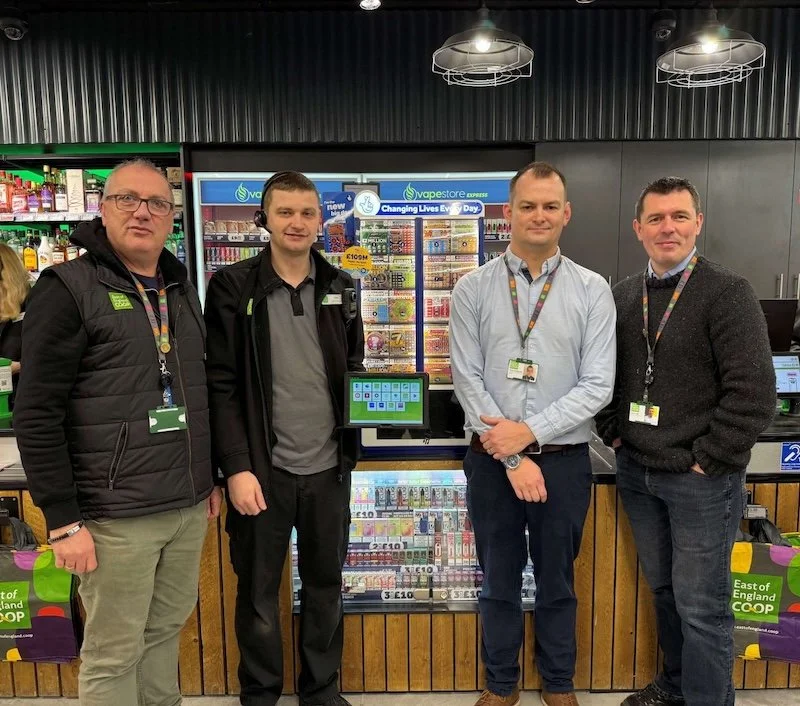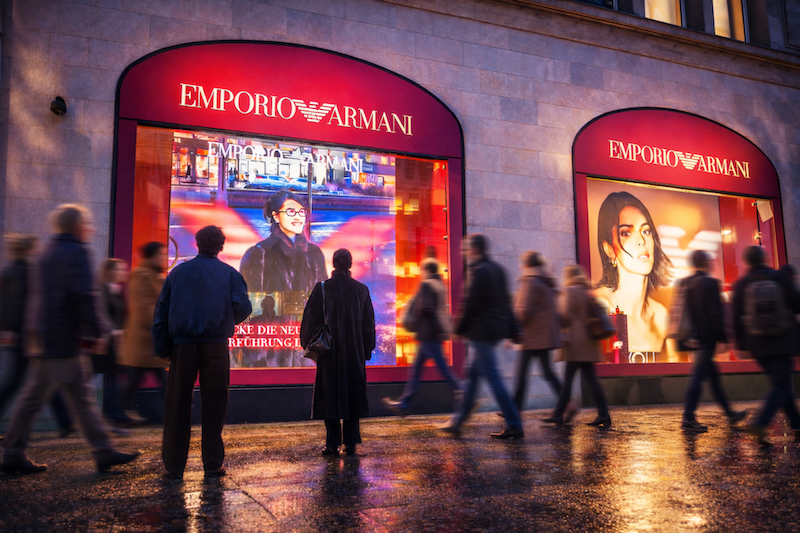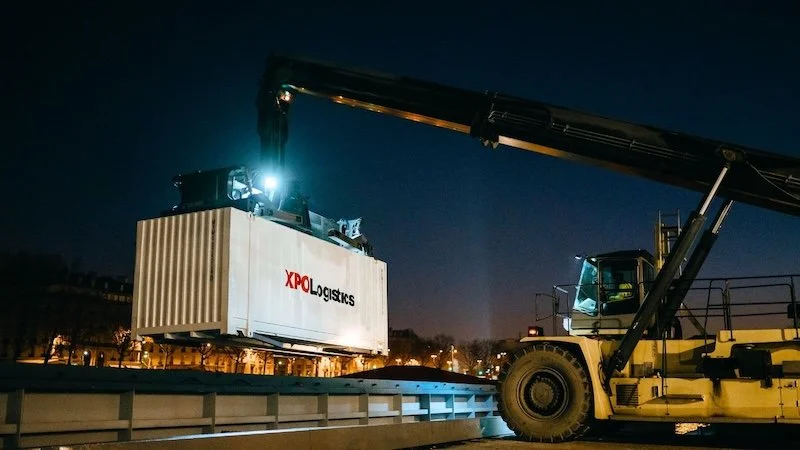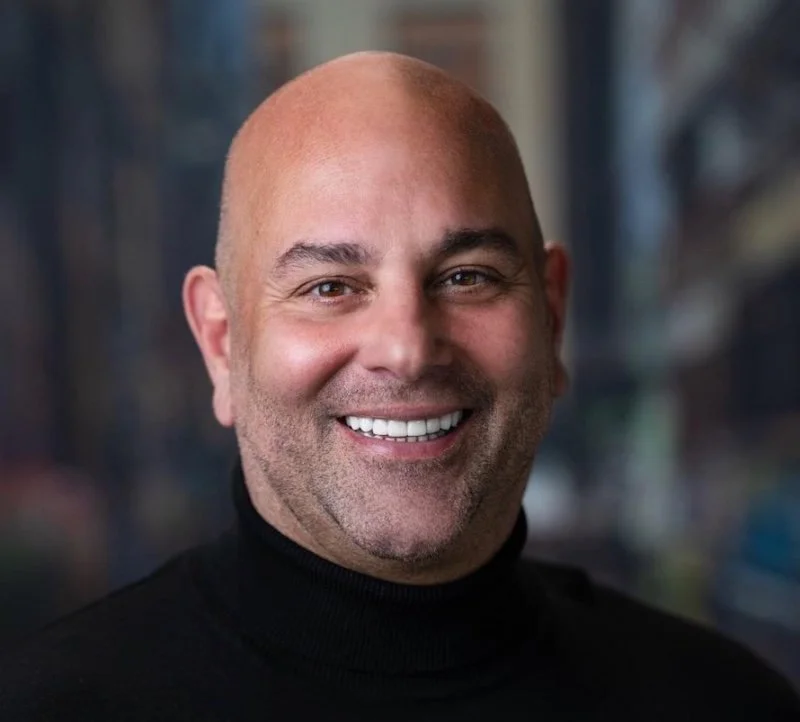Meyer, Asda, and Co-op lead the way as RTIH presents April’s coolest retail technology plays
RTIH Editor, Scott Thompson, brings you his stand out ‘future of retail’ systems deployments from April, including autonomous grocery deliveries, intelligent vending freezers, crypto payments, and computer vision powered stores.
Meyer
Autonomo, a German provider of computer vision technology for retailers, has announced a new (undisclosed) investment from Brookstreet Equity Partners and its inaugural customer in Meyer, part of the EDEKA group.
This will lead to the opening of several new autonomous stores in northern Germany, equipped with technology such as artificial intelligence, computer vision and machine learning.
"We are thrilled to partner with Autonomo to deliver the future of retail to our customers," says Jörg Meyer, Owner and CEO at Meyer's Frischecenter.
"We looked at several providers and Autonomo's cutting-edge technology is best designed to simplify the shopping process for retailers and customers."
"Our first autonomous store will offer a wide range of products, including fresh fruits and vegetables, dairy, meats, wines, beers, and bakery. Customers can use their credit/debit cards or smartphones to access the store and make purchases without any human intervention, simplifying the shopping process."
Kodiak Robotics and C.R. England
Self-driving truck company, Kodiak Robotics, has announced a partnership with truckload carrier C.R. England.
To kick things off, the pair have launched a pilot to autonomously ship Tyson Foods protein products between Dallas and San Antonio, Texas.
The deliveries launched in April using Kodiak self-driving trucks and C.R. England refrigerated trailers. Safety drivers will be in the trucks in the initial stages of the pilot.
Asda and Wayve
Asda customers can now receive their shopping via a Wayve self-driving vehicle in what is pitched as the UK’s largest autonomous grocery home delivery trial.
In partnership with Wayve, the year long trial will give the supermarket the ability to autonomously deliver groceries to a catchment area of over 170,000 residents across 72,000 households in London.
The self-driving vehicles will join its existing online delivery operation at the Park Royal superstore in West London and have the capability to drive themselves to customers’ homes.
Asda Park Royal customers can place their next-day delivery orders online as usual, choosing from the full range of online products and selecting a delivery slot that suits them.
The only difference is they could be randomly selected to have their order delivered in a self-driving vehicle.
During the trial, both an Asda colleague and supervising Wayve safety driver will be in the vehicle when making deliveries. Asda colleagues will load and unload the groceries at the customer’s home.
ŻABKA GROUP
Żabka Group’s Żabka Nano pop-up autonomous store offering is now live at Szpital Wojewódzki w Poznaniu hospital in Poland.
In a LinkedIn post, Patryk Powierża, Head of Growth at Żabka Polska, said: “First Żabka Nano store in a hospital.”
“We truly believe that autonomous stores can bring more convenience to the life of our customers. Thanks to this autonomous technology we can open our store in locations where traditional stores can’t appear.”
“Our Nano store in the hospital will be open in a few weeks and it will be ready to serve patients, their families, and hospital employees in 24/7/365 mode.”
Starship Technologies
Starship Technologies reports that its delivery robots have passed the 10 million km mark (over six million miles) in terms of distance travelled around the world.
It claims that this is further than any other company in the industry, and more than six times that of the one million mile mark recently announced by self-driving car developers, Waymo and Cruise.
To hit this milestone, Starship’s 2,000+ strong fleet of robots have made more than four million autonomous deliveries globally, also an industry leading figure, and completed 140,000 road crossings around the world every day.
While they have been operating at the L4 level of autonomous driving since 2018, the company also reports that one of its robots recently completed a company record 24 deliveries in 16 hours 100% autonomously without any human intervention or oversight.
ALBERT
Ahold Delhaize owned retailer Albert has announced, in partnership with Brain Corp and Tennant Co., that its fleet of autonomous mobile robots (AMRs) deployed across its Czech Republic hypermarkets and two distribution centres have officially cleaned over 20 million square metres (215 million square feet), completing over 92,000 cleaning routes.
During 2023, it will almost double the number of stores with robot deployments.
“Last year we put a number of autonomous scrubbers into operation and this year we plan to continue to scale up their use. Altogether, almost double the number of robots will be operating in our stores by the end of March,” says Pavel Klemera, Operations Support Manager at Albert.
“Robots clean precisely, don´t skip any space and help our employees to save their effort so, they can use the time to elevate our customers’ experience.“
Selfly Store
Selfly Store, an intelligent vending company owned by Stora Enso, has announced the commercial launch of its latest product, the Selfly Freezer.
This is pitched as the first intelligent vending freezer on the market.
It is the latest addition to the Selfly Store Model 3 product family, which offers a complete self-service solution through hardware, cloud-based software, RFID tags, and a service network.
Using RFID technology, it provides real-time item level data analytics with the aim of optimising sales and operations while reducing food waste.
Co-op
Polytag is set to apply both QR codes and UV tags to Co-op own label PET 2-litre spring water bottles in what it pitched as an industry first, offering the convenience retailer visibility of its packaging during the recycling process.
The unique every time QR codes will be applied to the pack labels by Co-op’s bottled water supplier at the standard label application speeds.
They are GS1 compliant and take consumers to a Co-op landing page detailing information about both the retailer’s sustainability and charitable commitments.
Within the QR code there is a serial number which can be used to handle fraud proof rewards, assign loyalty points and secure deposit redemptions.
A UV tag layer invisible to the human eye, printed by Tipografic using UV flexographic inks, is also then applied across the label.
This enables barcode level information to be captured in the recycling centre and is uploaded to Polytag’s cloud-based analytics dashboard, providing the retailer with real-time insights on whether packaging is actually recycled, and in what volumes.
The UV tag reading technology was developed by Polytag in partnership with researchers at the Advanced Manufacturing Research Centre. It is fitted to the plastics conveyer at Abergele’s Gofer Bulking Centre in Wales.
Nando’s
Nando’s UK has become the first to trial Karakuri’s /FRYR automated fry line as it aims to deliver the perfect chips in its Park Royal restaurant.
This combines robotics, edge computing, and hyperscale data analysis to provide restaurants with production of up to 550 portions of chips per hour.
Cameron Roberts, Group Chief Operating Officer at Nando’s, says: “We want to deliver uplifting and memorable experiences for our customers, with delicious quality food and good value at the heart.”
“In testing Karakuri’s /FRYR, we wanted to see how we can further improve the quality, consistency, and availability of our chips, while meeting our environmental objectives of reducing food and oil waste and reducing energy consumption.”
RALPH LAUREN
AFL and Amazon
The AFL (Australian Football League) has announced that Marvel Stadium will become the first venue in the Southern Hemisphere to introduce Amazon’s Just Walk Out technology for checkout-free purchases.
This will be available at two outlets known as ‘The Runner’ - one food and beverage and one bar - in time for the early rounds of the 2023 Toyota AFL Premiership Season.
Fans will use their credit or debit card, or mobile wallet payment option at entry, collect their items, and leave the store without having to wait in line to checkout.
Just Walk Out technology is made possible by artificial intelligence like computer vision and deep learning techniques, including generative AI, to accurately determine who took what in a store.
Amazon says that it built synthetic datasets to mimic millions of realistic shopping scenarios, including variations in store format, lighting conditions, and even crowds of shoppers, to ensure accuracy in any environment.
The technology is currently in use at sports venues across the US, including TD Garden, home of the Boston Celtics (NBA) and Boston Bruins (NHL), and Climate Pledge Arena, home of the Seattle Kraken (NHL).
Fans purchasing alcohol will be required to show their ID to a store attendant for age verification.















Continue reading…